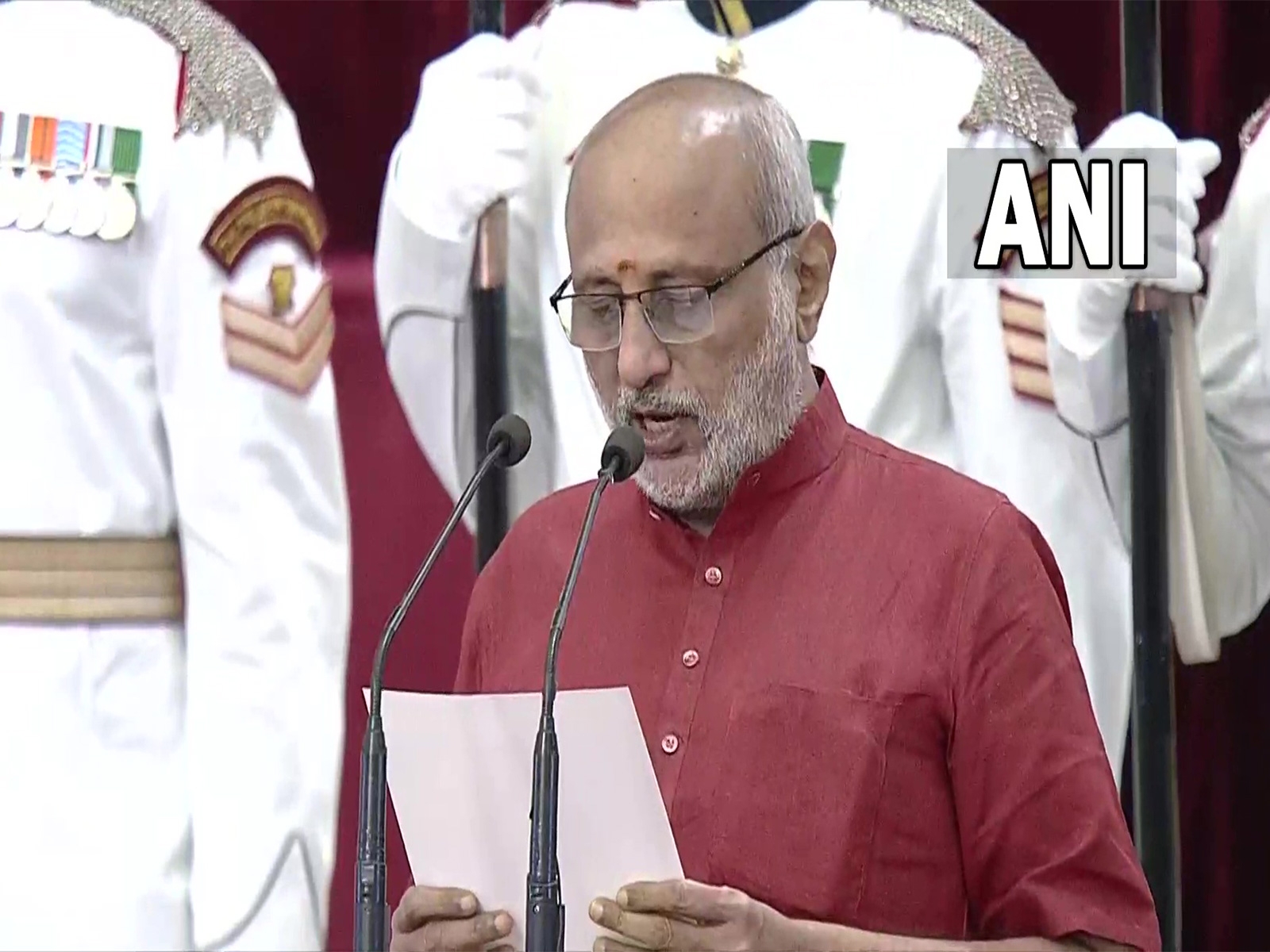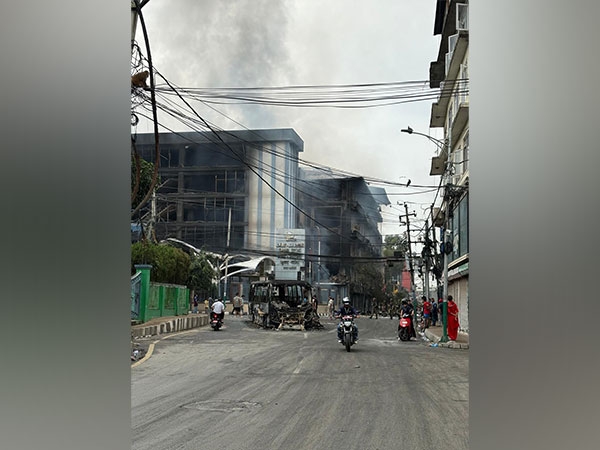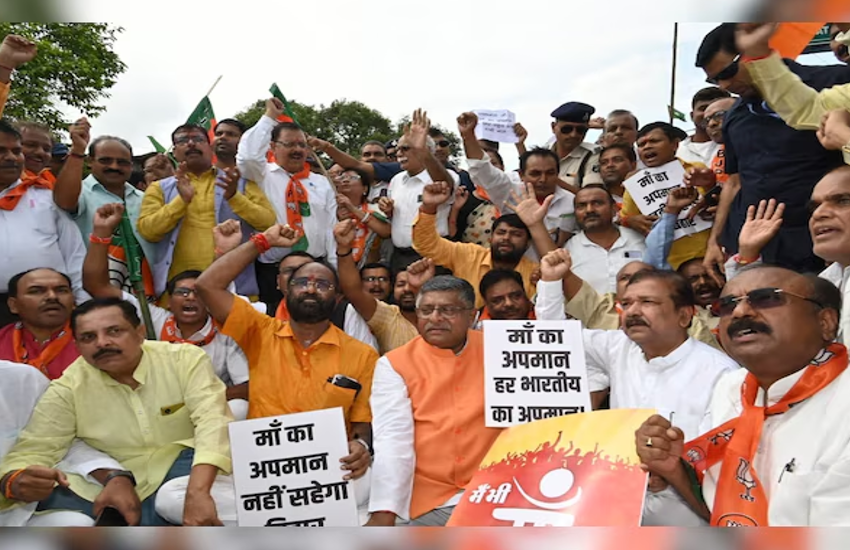Assam divided: Himanta's comments on Hindu and Muslim immigrants spark row

Powerful Assam minister Himanta Biswa Sarma has stirred the hornet's nest by drawing a distinction between Hindu and Muslim immigrants in the state.
Sarma made the comments in the context of the proposed amendment to the Citizenship Act, raking up a controversy over something that's already a sensitive issue in Assam.
This has compounded the six-month-old BJP government's problems in the state, especially since it is currently unable to follow through on its promise of granting ST status to six important tribal groups, which constitute 50% of the state's population.
A large section of native Assamese bodies and political parties have called Sarma's comments 'communal' and 'against the spirit of the Assam Accord', something they consider sacrosanct. They say the proposed amendment, in its present form, could destablise the state, which has a history of strife on ethnic and linguistic lines.
But on the other hand, the BJP leadership maintains that whatever Sarma has said is in line with the policies and the ideology of the party. The party brass also claims that since that the notification for the amendment was made before the Assam Assembly elections earlier this year, and it won the polls with an overwhelming majority, the people of Assam have no issue with the amendment.
Problems posed by the amendment
The amendment to the Citizenship Act proposes to give citizenship to persecuted religious minorities from Afghanistan, Pakistan and Bangladesh. The amendment is currently being considered by a Joint Parliamentary Committee.
But it is facing a lot of flak in Assam, including from a section of the Asom Gana Parishad, an ally in the state government.
Speaking at the launch of his new book - Anya Ek Dristikon - Sarma reportedly said: "We have to decide who our enemy is. Who is our enemy - 1-1.5 lakh people or 55 lakh people? We want the Bengali-speaking Hindus to remain with the Assamese people. That is the BJP's viewpoint. It has not changed. It has been the same, both before and after the elections."
Gaurav Gogoi, a Congress MP from Assam and son of the previous Chief Minister Tarun Gogoi, says the bill, in its present form, could introduce instability.
"It is insensitive to Assamese history and culture, and could revive tensions," Gogoi told Catch. He also pointed out how it would 'derail' the ongoing process of the updation of the National Register of Citizenship, ordered by the Supreme Court.
Speaking to Catch from Guwahati, Samujjal Bhattacharya, advisor to the All Assam Students Union, which led the Assam agitation against illegal immigrants, said he would like to know if what Sarma said was the BJP's party position, or that of the state government. He said even during the agitation, there was a section which proposed a distinction between immigrants on religious lines, but it was rejected by the indigenous Assamese population.
"The Assam Accord is a national commitment," Bhattacharya explained, adding that for the indigenous Assamese population, an illegal immigrant who has come to Assam after the cut off date of 21 March 1971 has to be expelled irrespective of the religion.
Interestingly, many BJP leaders in Assam, including CM Sarbananda Sonowal, trace their journey to the days of the Assam Movement, and carry the burden of expectations of the indigenous Assamese population.
'People voted for Assam Accord'
AASU has hit the streets in protest since the announcement of the proposed amendment. Several other bodies and intellectuals, too, have come out in opposition to the BJP's move.
A group of as many as 12 bodies, including AASU, has also given its representation to the JPC, which had planned to visit the state on 2 November. The visit has now been rescheduled, and will happen after the Lok Sabha and Assembly by-elections on 19 November.
Bhattacharya points out that Assam voted for change in the 2014 Lok Sabha elections and the 2016 Assembly elections, and that the fact that 85% of the people came out and voted showed that the popular vote was for safeguarding the spirit of the Assam Accord in the face of an onslaught by the 'illegal immigrants'.
"The people came out and voted so that no Bangladeshi could become CM or Deputy CM," Bhattacharya said, in a veiled reference to the Badruddin Ajmal's All India United Democratic Front. This is seen as a party of Bengali-speaking Muslims, a section of whom are perceived to be illegal immigrants by the indigenous Assamese population.
Bhattacharya said the BJP, in its vision document in the run up to the 2016 elections, had promised to implement the Assam Accord and constitutional safeguards for the indigenous Assamese populace. "Unfortunately, like the previous governments, even the BJP government at the Centre continues to ignore the part of the country beyond Kolkata, that is Assam and the Northeast."
AIDUF's Ajmal, the MP from Dhubri, a Bengali-speaking Muslim majority district in Lower Assam, had also criticised the amendment, calling it an attack on the indigenous Assamese population.
The pressure groups representing the interests of the Bengali-speaking Muslims in Assam have maintained that the ongoing process of the National Register of Citizenship will settle the question of illegal immigrants.
However, it is not just the Bengali-speaking Muslims that have been unnerved by the NRC process. Some Bengali-speaking Hindus are also wary, because a section of them came to Assam after the cut-off date, owing to the persecution they faced in East Pakistan/Bangladesh.
The amendment, said Gaurav Gogoi, is against Article 14 of the Constitution. "Why does it exclude the Muslims from Balochistan, the Tamils from Sri Lanka or the Rohingyas from Myanmar?" Gogoi asked.
BJP stands ground, but won't be easy for it
Meanwhile, former BJP state president Siddhartha Bhattacharya sees no contradiction in the BJP's decision to amend the Act. He points out how taking care of the refugees belonging to the communities that form the minorities in these countries has very much been on the agenda of the Jana Sangh, and later, the BJP.
He said sections opposing the move, including the AGP, should have realised it before the elections, when the announcement was made. He pointed out that the protests by bodies like AASU do not mean much, since the BJP has the popular mandate.
Another BJP strategist, who spoke on the condition of anonymity, pointed out that bodies like AASU do not exercise the kind of influence they had at one point, and can be managed easily.
The strategist also explained that since Sonowal was now the Chief Minister of a BJP-led government, it wouldn't be easy for him to drift away from the stand of the party, despite any pressure he faces from his former AASU colleagues or his own support base.
Meanwhile, an academic who worked on the Assam movement, said it was not going to be easy for the BJP to pass and implement this amendment. He pointed out that the indigenous population overwhelmingly supported the BJP in elections, because it feared the AIUDF coming to power. "But now that this fear is gone, they are coming out against the BJP's proposed move," he said.
The academic also pointed out an interesting development - that a majority of the local TV channels, who seemed to be supporting a regime change, now seem to be opposed to the amendment.
Edited by Shreyas Sharma
More in Catch
Challenges for Sonowal: illegal immigration issue tops to-do list in Assam
Assam polls: stand against immigrants is BJP's trump card
Assam Election 2016: Illegal immigration, Bengali Muslims & the AIUDF factor
First published: 2 November 2016, 11:15 IST




![BJP's Kapil Mishra recreates Shankar Mahadevan’s ‘Breathless’ song to highlight Delhi pollution [WATCH] BJP's Kapil Mishra recreates Shankar Mahadevan’s ‘Breathless’ song to highlight Delhi pollution [WATCH]](https://images.catchnews.com/upload/2022/11/03/kapil-mishra_240884_300x172.png)

![Anupam Kher shares pictures of his toned body on 67th birthday [MUST SEE] Anupam Kher shares pictures of his toned body on 67th birthday [MUST SEE]](https://images.catchnews.com/upload/2022/03/07/Anupam_kher_231145_300x172.jpg)






